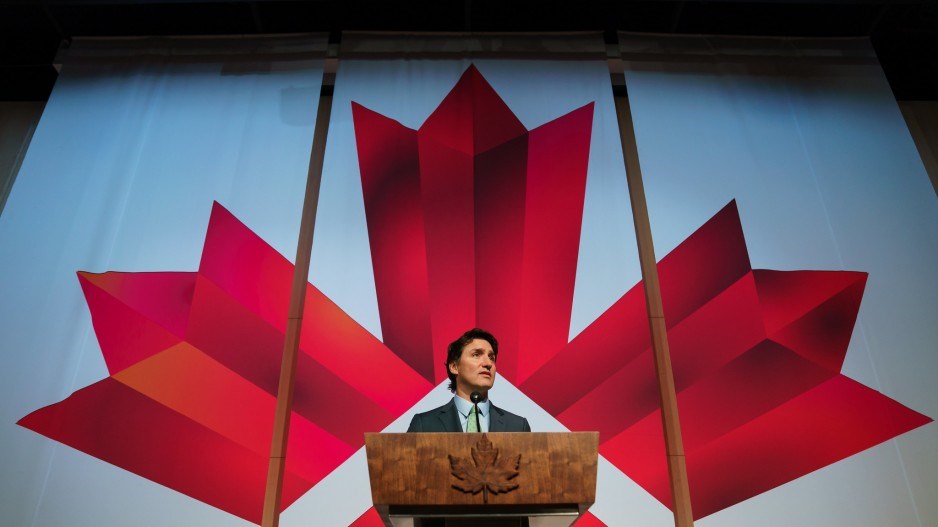It is three-and-a-half months since David Eby took the reins of power in B.C. There is no denying the energy and ambition he has brought to the role. Announcement after announcement has rolled out of the Premier's Office since December 8 across a broad spectrum of initiatives in health care, housing, energy, infrastructure, increases in affordability tax credits and family benefits, and many, many more.
This column isn't going to analyze the pluses and minuses of this ambition. Instead, I will argue that Premier Eby'ssuccess on the big questions that will ultimately determine his political success may well be largely out of his control.
The most recent polling in B.C. shows that the most important issues are housing affordability, inflation/rising interest rates, and health care. Inflation and rising interest rates are overwhelmingly determined by federal monetary and fiscal policy, so largely outside the control of Premier Eby. What about the other two big issues – health care and housing affordability? While these two areas look to be within the domain of the provincial government, B.C.’s success in addressing the public’s concerns here will be largely hostage to the federal government’s immigration policy. Let me explain.
Since it came to office, the current federal government has increased the level of immigration into Canada significantly. Most of the attention has been focused on the increase in new permanent residents. Last year, 438,000 people were granted permanent resident status, a 60% increase over 2015. The federal government plans to raise this to 500,000 by 2025.
What receives less attention is another category of people coming to Canada – “non-permanent residents.” This category includes Temporary Foreign Workers, International Students, and the International Mobility Program, which provides multi-year permits to live and work in Canada. This category has been growing as well. In fact, this category has been growing at a faster rate than permanent residents. Last year there was a net increase of 608,000 in non-permanent residents.
So, in total, the federal immigration policy resulted in an additional 1.045 million people coming to Canada – far and away the largest number of newcomers to Canada in one year ever. Last year 160,000 of the 1.045 million came to B.C.
The rationale for these unprecedented numbers is that Canada has a “worker shortage.” This rationale is almost entirely fallacious, but that is a subject for another column. Let’s focus here on what this means to Premier Eby.
What is the basic problem in health care? An inability to meet the public’s demands for medical services. One million British Columbians don’t have a family doctor. Waiting lists to get to see specialists and to get necessary surgery continue to get longer. No doubt part of the problem is a result of the Covid pandemic. But that rationalization is buying less and less forbearance by the public as we get further and further away from those dire days in 2020 and 2021.
The federal government’s prescription for this? A rapid increase in the number of people who will need services from our health care system!
A story is spun is that the government will use the higher immigration numbers to bring in more health care professionals. But this would only work if the proportion of qualified doctors, nurses and allied health workers in the more than one million new Canadians is significantly larger than the existing proportion of those professionals in the current Canadian population, and that they could get licenced immediately to practice in Canada. Neither of these conditions will be met.
The net result of this? Premier Eby is going to have even more difficulty in delivering improved health care accessibility to British Columbians.
And then there is housing. Almost all of the narrative around the shortage of affordable housing focuses on the supply side. If only we could force municipalities to make permitting easier and faster, and to zone more density, our housing affordability would be solved. The fact is, we build a lot of homes in B.C. In Greater Vancouver – ground zero in our housing affordability problem - 365,000 homes were built in the 20 years between 2001 and 2021. And there has been ample densification, as a walk through any of the redeveloped neighbourhoods in Vancouver shows.
But supply is only half of the equation. Demand matters too. And as quickly as we have built new homes, the population in our major urban centres rises as well.
The Federal Government’s prescription for this? Ramp up immigration numbers!
Again, a story is spun that this will actually increase housing supply because we are going to bring in more trades workers to build the houses we need. Suffice it to say there are some pretty heroic assumptions here. It is not going to work.
Of the 160,000 new British Columbians last year, more than 95% settled in the Lower Mainland, Southern Vancouver Island, and the Okanagan – where affordable housing was already acutely unavailable.
The net result? Premier Eby is going to have even more difficulty in delivering more affordable housing.
This is all good for one group of British Columbians – those that are fortunate enough to already own a home. So, thank you, Mr. Trudeau for making me wealthier and my fellow boomers wealthier.
But if I were Premier Eby, I don’t think I would be quite as grateful.
Don Wright was the former deputy minister to the B.C. Premier, Cabinet Secretary and former head of the B.C. Public Service until late 2020. He now is senior counsel at Global Public Affairs.




